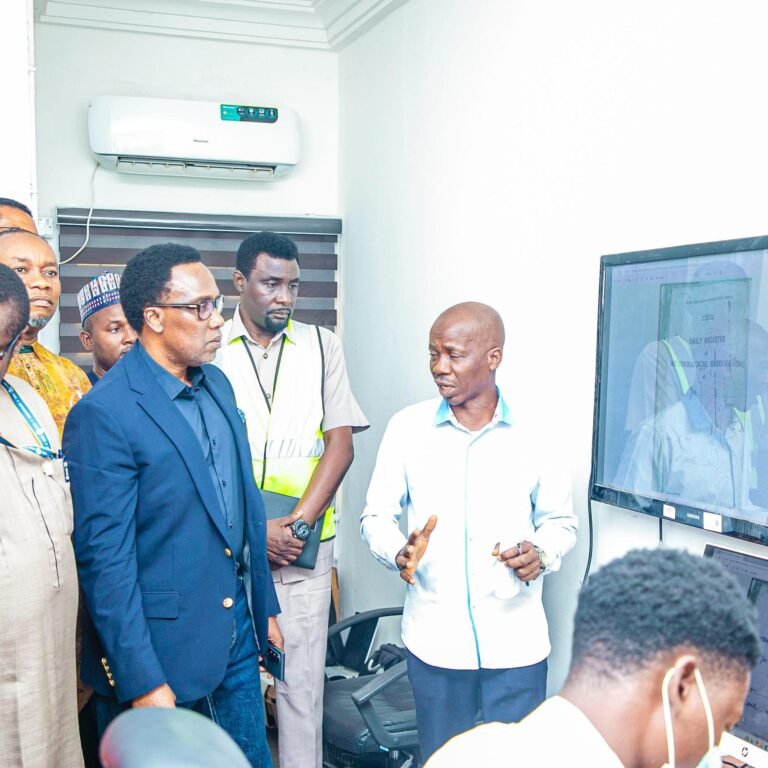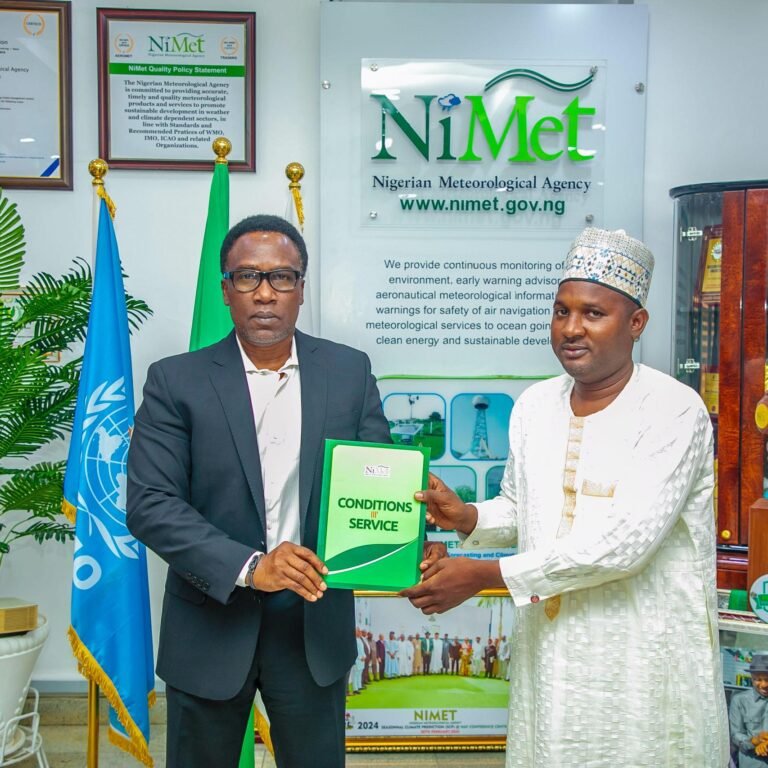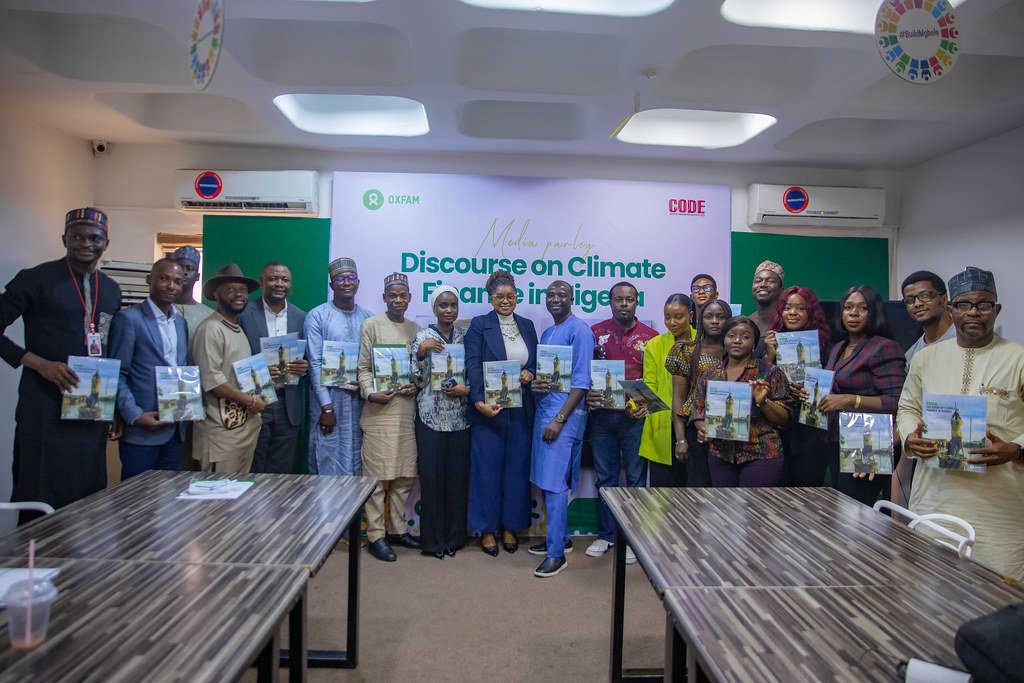
By Online Editor Ameh Gabriel
Nigeria requires over $10 billion every year to effectively respond to climate vulnerabilities, yet only a fraction of this is being mobilized, according to a new report jointly released by Connected Development (CODE) and Oxfam.
The report, State of Climate Finance in Nigeria, was unveiled on Tuesday at a media discourse in Abuja, which brought together journalists, civil society actors, and government representatives to examine Nigeria’s climate financing outlook ahead of COP30 in Brazil.
According to the findings, the country needs approximately $17.7 billion annually to meet its climate commitments. However, only $4.93 billion has been disbursed in the past seven years, leaving an average $7 billion annual financing gap, despite more than 200 climate-related projects being initiated in recent years.
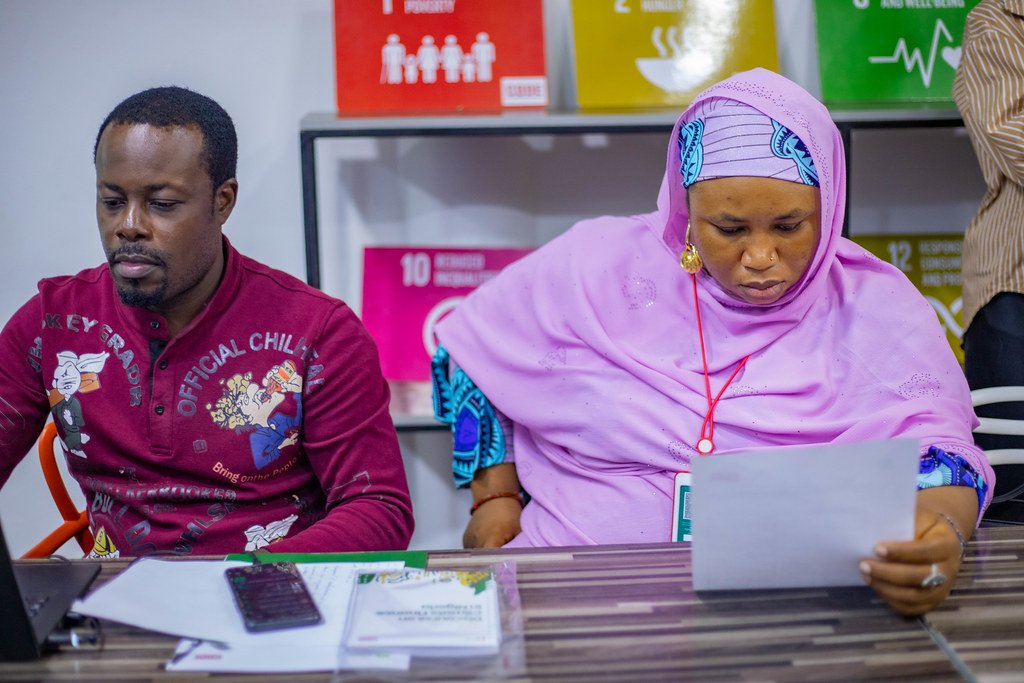
Where the Funds Go
Sectors such as agriculture, renewable energy, and water resources have absorbed the largest share of available climate finance. Yet, systemic barriers such as weak local fund management, limited community participation, and regulatory bottlenecks continue to limit access.
The report further warned that reliance on loans is worsening Nigeria’s debt profile, while grants that could ease fiscal pressure remain largely underutilized. CODE recommended adopting green budgeting, urging ministries and agencies to integrate climate targets into annual budgets for more effective allocation.
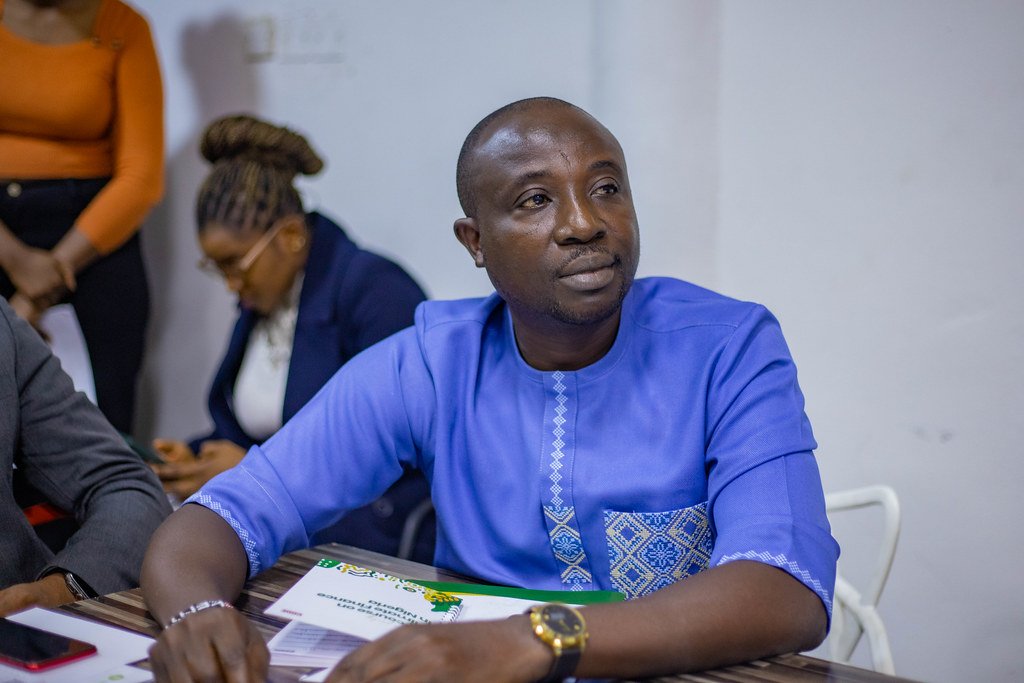
An analysis of the 2024 federal budget revealed that:
Adaptation projects accounted for 56% of allocations.
Mitigation projects received 11%.
Administrative costs consumed 32%.
Climate education and finance mobilization received less than 0.5% combined.
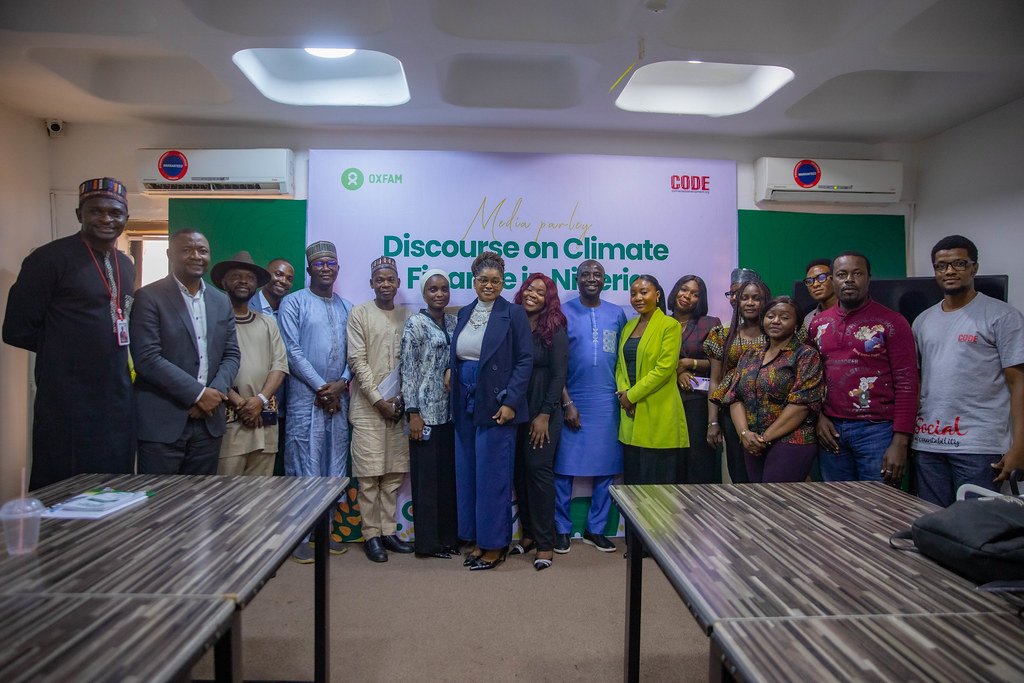
The Federal Ministry of Environment controlled 64% of the climate budget, focusing heavily on erosion control, flood management, and pollution prevention.
Calls for Reform
Enebi Opaoluwa, Head of Natural Resource and Climate Governance at BudgIT Foundation, stressed the need for greater transparency, citizen participation, and climate-responsive budgeting.
“Communities are already bearing the brunt of climate shocks. Without accountable use of funds, vulnerabilities will only deepen,” Opaoluwa warned.
The Nigerian Climate Change Council (NCCC) was identified as a central actor in coordinating reforms, mobilizing domestic resources, and supporting state-level implementation.

The Role of the Media and Global Processes
At the forum, Etta Michael Bisong, Abuja Bureau Chief of EnviroNews, emphasized the role of environmental journalism and public awareness in strengthening accountability and amplifying the voices of vulnerable groups.
She highlighted the importance of linking Nigeria’s climate finance outlook to international frameworks under the UNFCCC, including the Kyoto Protocol (1997) and the Paris Agreement (2015). These agreements anchor climate finance as a central pillar, funnelling resources from developed nations through mechanisms such as the Green Climate Fund, Global Environment Facility, Adaptation Fund, and the Loss and Damage Fund established at COP27.
Bisong urged journalists to actively track UNFCCC negotiations, verify climate pledges, and spotlight local realities to ensure funds are not lost in bureaucracy.
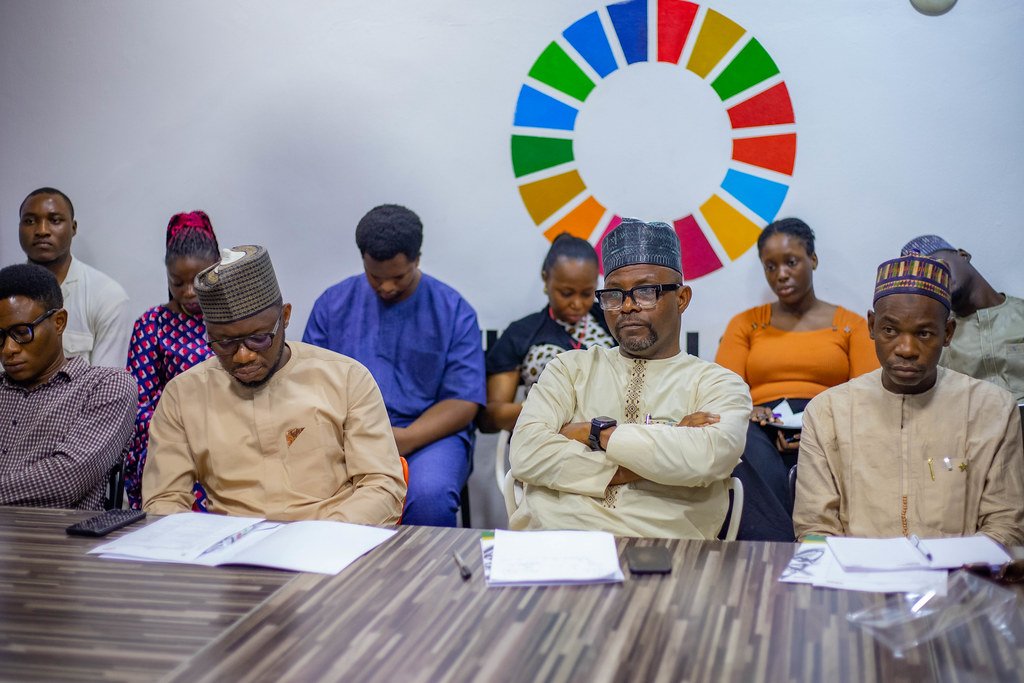
Way Forward
Experts at the event underscored that bridging Nigeria’s climate finance gap will require stronger collaboration between government, civil society, and the private sector, alongside more transparent fund management.
With extreme weather events intensifying, they argued that accurate reporting and inclusive governance are critical for mobilizing resources, safeguarding communities, and ensuring Nigeria achieves sustainable development goals.



